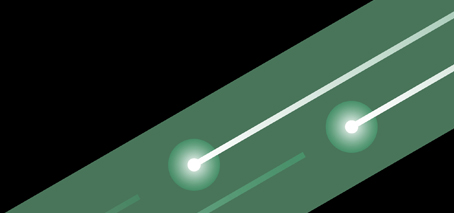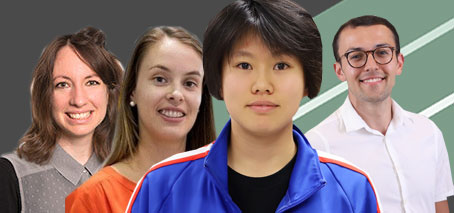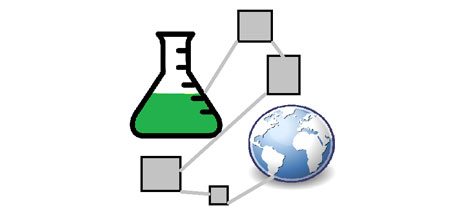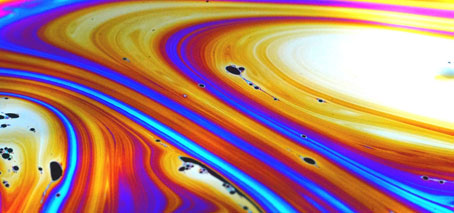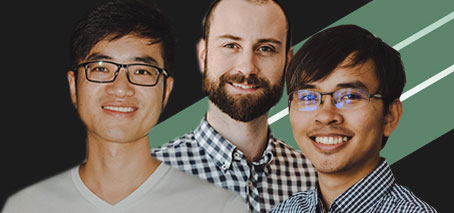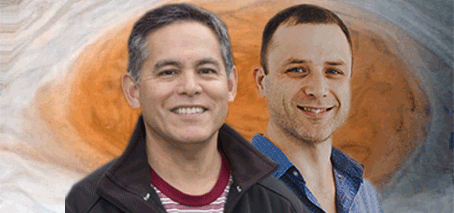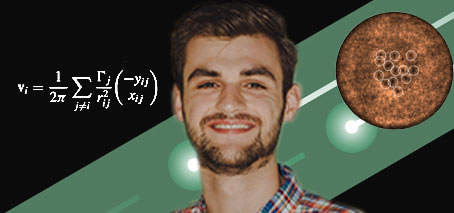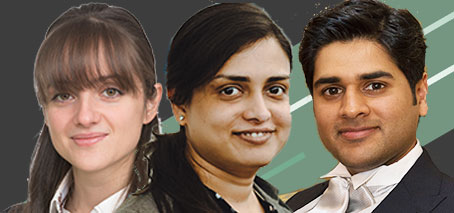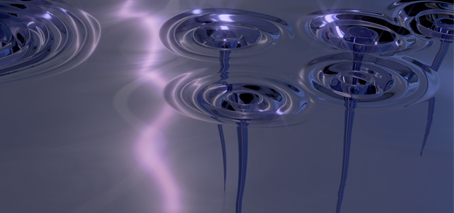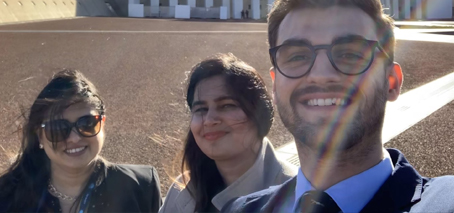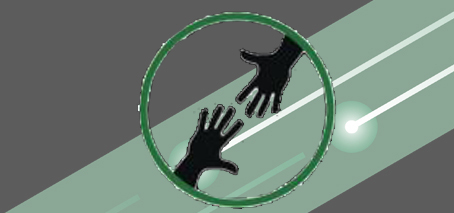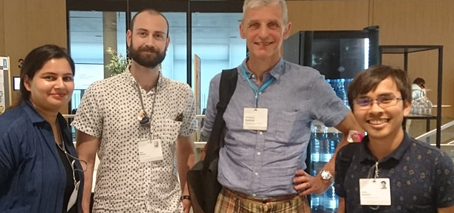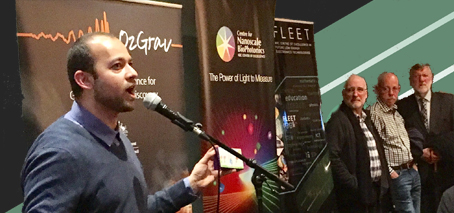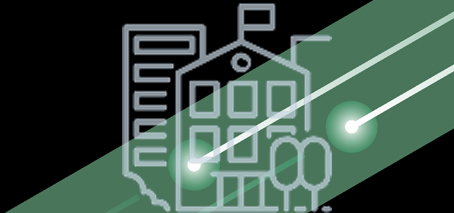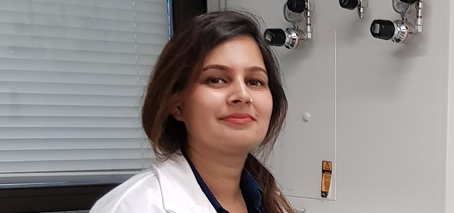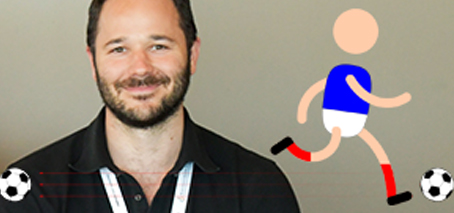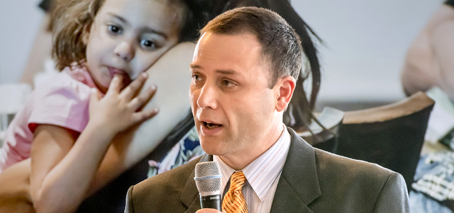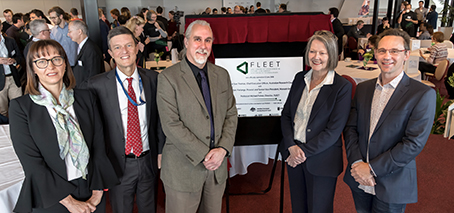This month’s ARC Discovery Project announcement saw FLEET research and researchers awarded additional research funding for ten projects building fundamental knowledge and strengthening Australia’s quantum, photonics and nanotechnology ecosystems. See the Australian Research Council media release. Dimitrie Culcer (UNSW); Allan MacDonald. Filling a substantial knowledge gap in novel semiconductors that can function as sensors in a frequency range where conventional …
Four new Research Fellows: increasing our team’s strengths with diversity
FLEET welcomes four new research fellows, working in disparate roles across the Centre and all contributing to the improved diversity that makes the Centre greater than the sum of its parts: Dr Emma Laird (UQ) Dr Yonatan Ashlea Alava (UNSW) Dr Mengting Zhao (Monash) Dr Grace Causer (Monash) The four new fellows were successful candidates among 35 applicants for the …
Translating research discoveries: introducing FTP
“Inventions and new products come from combining novel and existing technologies” (Joseph Schumpter) What is ‘translation’ anyway? And what are the benefits for me / my work? Does this apply to my work? Will industry be interested in what I’m doing? (Spoiler: Yes it does! Matt Davis explains quantum weighbridges) How can FLEET help me do this? A FLEET audience …
Superfluids provide new insight into turbulence
First published at EQUS: the ARC Centre of Excellence for Engineered Quantum Systems Eddies in an exotic liquid known as a superfluid merge to form large vortices, analogous to how cyclones form in the turbulent atmosphere. The new research, by a team from The University of Queensland, EQUS and FLEET will be important for emerging technological applications of superfluidity, such …
Trapping vortices in thin superfluid films
Physicists at the University of Queensland have shed light upon how tiny whirlpools (vortices) get stuck to obstacles in superfluids. Superfluids are a quantum substance that can flow without viscosity and hence do not slow down due to friction. A second defining feature of superfluids is that they only support quantised rotation – the vortices can only spin with strength …
New DECRA fellowships at FLEET
Three FLEET Research Fellows are amongst those receiving DECRA Fellowships in ARC announcements this week. Congratulations to: Dr Matt Reeves (UQ) Calming the Superfluid Storm: Taming Turbulence in Superfluid Devices Dr Eli Estrecho (ANU) Mixing light and matter with complex gauge fields Dr Qingdong Ou (Monash) Engineering twisted 2D materials for mid-infrared detectors. Dr Matt Reeves (UQ) Calming the Superfluid …
Congratulations Jemima and Tommy
Congratulations to Jemima Goodhew (UQ) – the newest Women in FLEET Honours scholar – and Tommy Bartolo (RMIT), who has received a FLEET writeup scholarship. Jemima Goodhew has been working with FLEET CI Prof Matt Davis at UQ on computationally modelling a 2D superfluid Helmholtz resonator, driven by a chemical potential difference. She is particularly interested in the transition to and …
Australian STEM recognised in Shanghai rankings
Great results for STEM in Australian universities in the Shanghai/ARWU 2021 rankings, with Australian universities represented in the world top-100 for all the natural sciences and engineering disciplines except maths. Highlights amongst FLEET’s participating nodes include: Monash and ANU (#28) ranked in the global top 100 for physics UNSW top 40 for electronic engineering Monash, UOW, UNSW and UQ top 100 for material …
FLEET physics a finalist in 2020 Eureka prizes
FLEET physicists from Monash University and the University of Queensland are finalists, named today, in the Australian Museum Eureka Prizes – the nation’s top science awards. The Australian Quantum Vortex team provided the first proof of a 70-year-old theory of turbulence. Turbulence is everywhere, but remains one of physics’ great unsolved problems. Turbulence in two-dimensional flow, and the giant vortices …
Vortex top-hats emerge in superfluids
An Australian-led study has provided new insight into the behaviour of rotating superfluids. A defining feature of superfluids is that they exhibit quantised vortices – they can only rotate with one, or two, or another integer amount of rotation. Despite this key difference from classical fluids, where vortices can spin with any strength, many features of the collective dynamics of …
Three FLEET ECR Grant recipients
First recipients of FLEET ECR Grants Grants funding research trips to Italy, Singapore, US FLEET’s ECR Grants fund travel for ECRs and PhDs, developing networks and professional and scientific skills, including supporting travel to research facilities to learn new techniques, form new collaborations, or complete training. Of the 1st round’s eight applications, the Education & Training Committee decided to fund three: …
Quantum tornado on a silicon chip
Self-forming quantum liquids on a silicon chip could revolutionise our understanding of turbulence and enable new technologies for precision navigation. Researchers at The University of Queensland have developed the first methods to bring together quantum liquids with modern silicon-chip based technology, allowing the observations of nanoscale quantum turbulence that mirrors the behaviour of a cyclone. Professor Warwick Bowen, from UQ’s …
Three of FLEET’s future science leaders engaging with policy-makers
FLEET had a team of three researchers at Science meets Parliament (SMP) in November, talking to parliamentarians and other scientists from around the country, and perfecting the art of pitching to politicians. FLEET’s gun team were: Hareem Khan (RMIT), Oliver Stockdale (UQ) and Semonti Bhattacharyya (Monash). Science Meets Parliament is an annual meeting of Australia’s policy-makers with leading and emerging …
Discovery Projects $2.6m funding boosts FLEET research
Yesterday’s ARC Discover Project announcement saw FLEET research and researchers across three Australian universities awarded additional funding. Across five separate grants, over $2.6m new research funding went to projects and facilities led by FLEET researchers, complementing FLEET’s search to develop ultra-low energy electronics and boost related areas of research. Australia’s Minister for Education Dan Tehan yesterday announced almost $285 million …
Discussing future science with future scientists (Queensland)
FLEET’s Matt Davis (node leader University of Queensland) discussed the future of science with some of Australia’s future scientists this month at Ipswich State High School, with local MP Shayne Neumann and James Rasmussen of Origin Energy.
Lindau report
Three FLEET ECRs were fortunate to attend the 69th Nobel laureate meeting in Lindau, Germany, forming an impressive 30% of Australia’s ten-person delegation elected and led by the Australian Academy of Science. This year’s meeting focused on physics, and a number of senior FLEET were amongst the laureates. Our ECRs were pleased to connect with Wolfgang Ketterle, William Phillips, and …
Order from chaos: Australian vortex studies are first proof of decades-old theory
Seminal, seventy-year-old theory of turbulence experimentally verified for first time Applications range from Jupiter’s Great Red Spot to electron movement in superconductors Images and video available Two Australian studies published this week offer the first proof of a 70-year-old theory of turbulence. “The studies confirm a seminal theory of the formation of large-scale vortices from turbulence in 2D fluid flow, …
COEs partner up for pitch training and physics on-stage
Three events last week allowed FLEET members to develop valuable, transferable communications and outreach skills, as well as providing a chance for FLEET to strengthen links with other ARC Centres of Excellence. A pitch training session for researchers from three ARC Centres introduced key communications concepts such as choosing the most effective lead, tailoring the pitch to the audience, presenting …
Vortex story resources
Resources for the story: Order from chaos: Australian vortex studies are first proof of decades-old theory Resources Videos Kris Helmerson (Monash) ultra-cold physics Kris and Shaun: 2D vortices (zero-graphics and no-caption options are also available) University of Queensland: paddle-stirred vortices Shaun Johnstone (Monash): Negative absolute temperature Future solutions to computation energy use Images Bose Einstein Condensate lab at Monash University …
Excellence in Research in Australia: ERA results
FLEET’s member universities performed extremely well in recently announced ERA results, looking at the fields of research in which the Centre is active. The ARC’s audit found that in: Physics, every Centre node ranked in the highest possible ranking Engineering, all nodes ranked above (or well above) world standard Materials engineering, fives nodes ranked in the highest ranking Technology, five …
Welcome new FLEET crew members
We have recently welcomed a number of new Centre members, including: New PhD students (in most cases, having decided to continue with us after their FLEET Honours projects): Bernard Field with Agustin Schiffrin (Monash) Oliver Stockdale with Matt Davis (UQ) Yik-Kheng Lee with Jared Cole (RMIT) Zeb Krix with Oleg Sushkov (UNSW) Mitchell Conway with Jeff Davis (Swinburne) Lina Sang with Xiaolin Wang (UOW) New …
Three young FLEET scientists off to Lindau Nobel meeting
Three FLEET researchers have been chosen to represent Australia at the annual Lindau Nobel Laureate Meeting this year. The three FLEET researchers will among ten early-career Australian scientists attending the 69th Meeting of Nobel Laureates in Lindau, Germany, 30 June – 5 July 2019. The 69th Lindau Nobel Laureate Meeting will be dedicated to physics. To date, 42 Nobel Laureates have …
Live-streamed FLEET seminars
In 2018 FLEET began a series of live-streamed seminars to help share research results across the Centre, keep members informed on latest FLEET research, and enhance inter-node collaboration. Early-career researchers presenting the seminars gain valuable presentation experience, and benefit from feedback on their research from diverse Centre members. These seminars also provide an opportunity for regular get-togethers in each node, …
Clarifying effects of negative mass
A FLEET study led by University of Queensland’s David Colas clarifies recent studies of negative mass, investigating the strange phenomenon of self-interference. Negative mass?? When we think of ‘mass’, we usually consider the ‘inertial’ mass – the resistance of a body to acceleration due to an applied force. For a moving object, its mass is then a simple relationship between …
More than just great science: Matt Davis at the Centre Launch
FLEET will deliver much more than excellent science for Australian society. We are training some of the next generation of scientists, engineers, and entrepreneurs. We will help them develop not only technical research skills, but also transferable skills that will be useful to them no matter what their eventual career direction. For example, we have ensured that our research groups …
Launch of FLEET Centre of Excellence to tackle hidden energy costs of computing
Official launch: Australian Research Council Centre of Excellence in Future Low-Energy Electronics Technologies 12 June 2018, 11 AM New Horizons Building, Monash University, Clayton We have an insatiable appetite for computing. But our ongoing need for computation is burning more than 5 percent of global electricity. And that figure is expected to double each decade. A new Australian Research Council …
Research in Light-Transformed Materials
FLEET researchers undertake various research projects in the area of Light-Transformed Materials. If you have a project that would fit this theme, find information about a potential supervisor here: PROF. KRIS HELMERSON Ultracold atomic gases Biophysics Biotechnology A/PROF. MEERA PARISH Theory of strongly correlated phenomena in ultracold atomic gases and electron systems Superconductivity and superfluidity Lowdimensional systems Magnetotransport DR. AGUSTIN …
Research in Exciton Superfluids
FLEET researchers undertake various research projects in the area of Exciton Superfluids. If you have a project that would fit this theme, find information about a potential supervisor here: A/PROF. MEERA PARISH Theory of strongly correlated phenomena in ultracold atomic gases and electron systems Superconductivity and superfluidity Lowdimensional systems Magnetotransport A/PROF. QIAOLIANG BAO Atomically thin optical materials (graphene, 2D transition …

